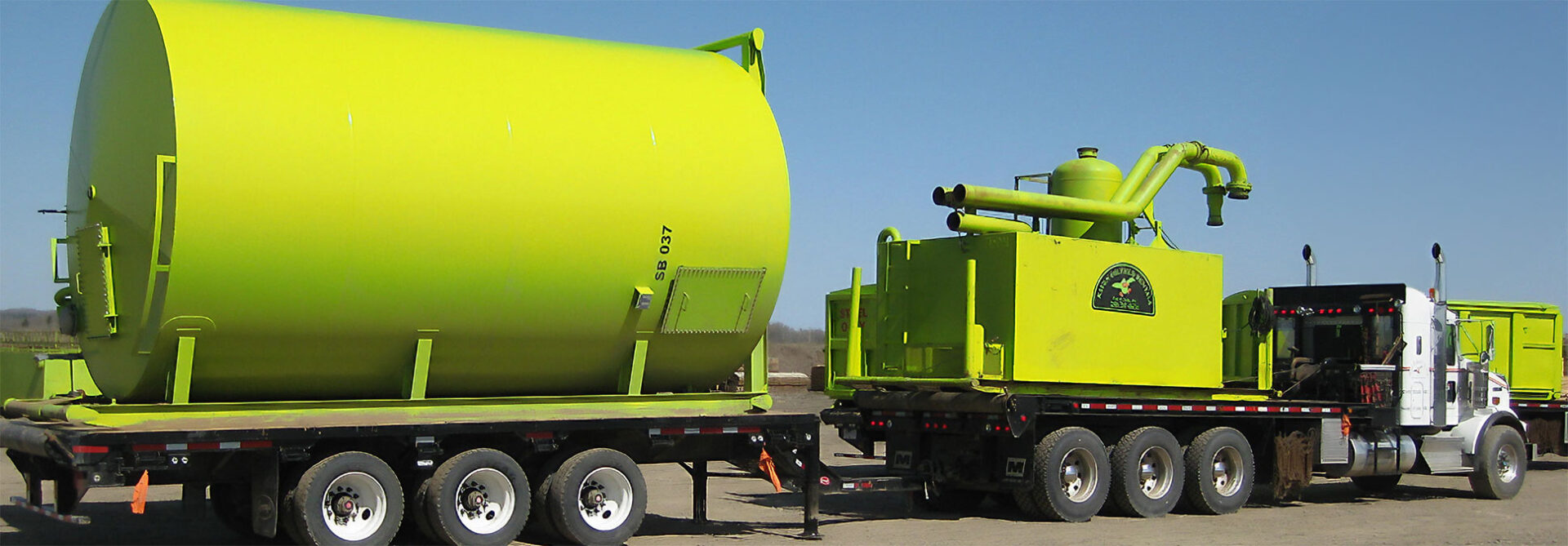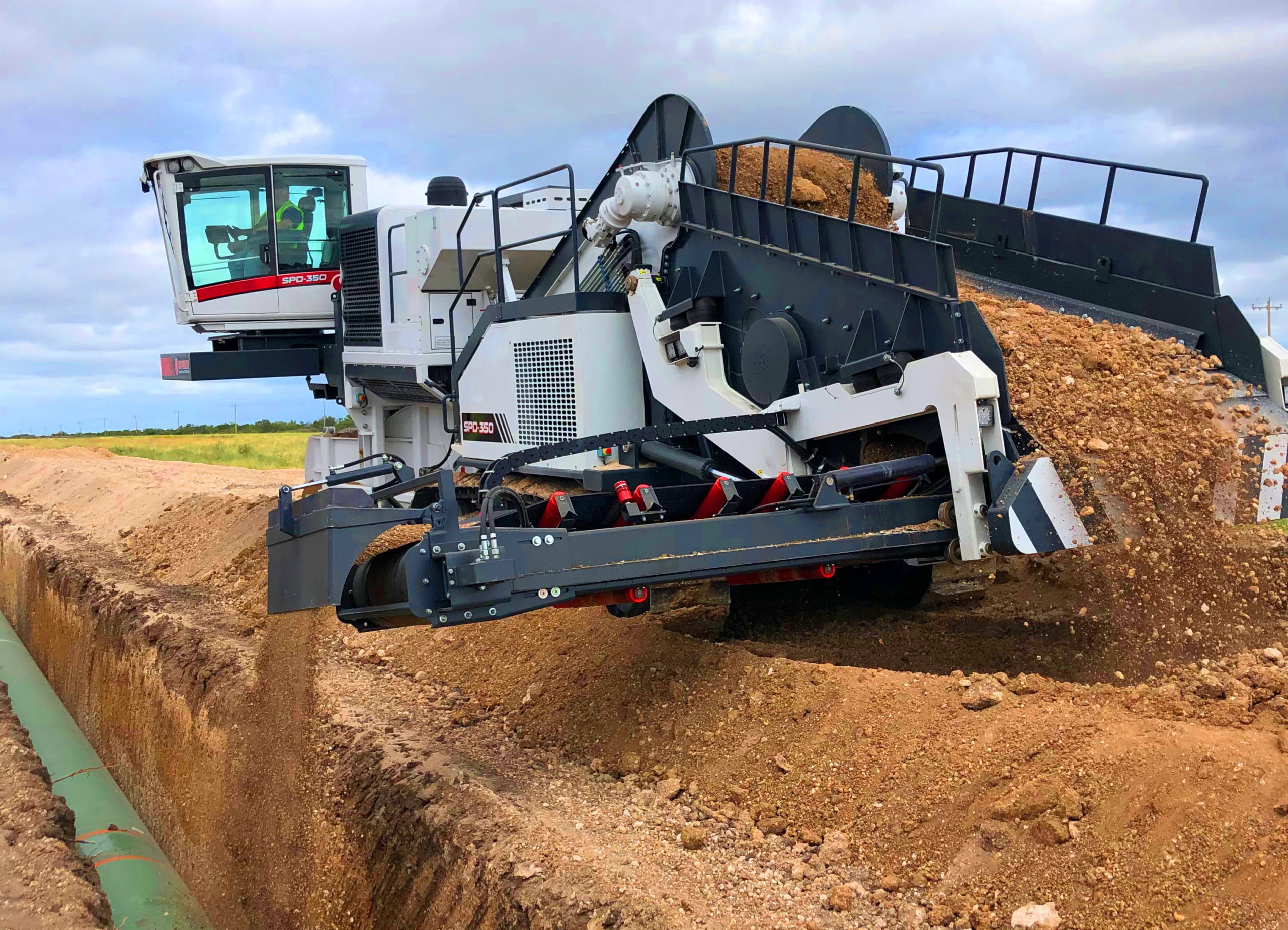Superior Oilfield pipeline equipment rentals: case studies
Wiki Article
A Comprehensive Overview to the Numerous Types of Oil Field Equipment and Pipeline Equipment Available
The oil and gas industry depends heavily on specific tools for effective removal and transportation. Numerous sorts of machinery, from piercing rigs to tank, play vital roles in this complicated process. Each tool offers distinctive functions that contribute to overall operational success. Understanding these parts is vital for any person involved in the industry. As the market evolves, so as well do the innovations that sustain it. What developments are on the horizon?
Drilling Rigs: The Foundation of Oil Expedition
Drilling rigs function as the necessary machinery in the domain of oil expedition, making it possible for firms to access hydrocarbon gets hidden deep underneath the Earth's surface. These rigs come in numerous types, including land rigs, offshore rigs, and mobile systems, each made to run in particular atmospheres. Outfitted with advanced modern technology, piercing rigs can penetrate geological developments with accuracy, making sure efficient source extraction. The architectural honesty and operational capacities of these rigs are crucial, as they have to endure severe problems and significant stress. The selection of an exploration rig impacts the general job expense and timeline, making it a crucial consideration for oil companies looking for to optimize their expedition efforts and maximize efficiency in their procedures.Pumps: Vital for Fluid Activity
In the oil extraction procedure, the duty of pumps is substantial, facilitating the motion of liquids throughout numerous stages of production. Pumps are vital for moving unrefined oil, water, and other fluids from below ground storage tanks to the surface area and after that with pipes to refineries. They are available in numerous kinds, including centrifugal, favorable variation, and submersible pumps, each offering specific purposes based upon the liquid features and operational needs. Centrifugal pumps are commonly made use of for their effectiveness in high-flow applications, while positive displacement pumps master handling viscous fluids. The option of pump impacts general efficiency, operational safety and security, and upkeep prices. Proper choice and maintenance of pumps are important for maximizing manufacturing and minimizing downtime in oil field procedures.Valves: Controlling Flow and Pressure

Valves play a vital duty in managing the flow and pressure of liquids within oil areas and pipelines. Numerous sorts of shutoffs offer distinct applications, each created to meet particular functions fundamental for effective operation - Superior Oilfield Rentals Texas. Comprehending the features and usages of these shutoffs is essential for maximizing system performance and safety and security
Kinds of Valves
Essential parts in oil area procedures, shutoffs play a crucial function in regulating the circulation and stress of liquids within pipelines and tools. Various kinds of valves are used to meet the varied needs of oil and gas manufacturing. Common types consist of gate shutoffs, which offer a straight-line circulation and minimal stress drop; globe shutoffs, known for their throttling abilities; and sphere shutoffs, identified for their fast on/off control. Additionally, check valves avoid backflow, while butterfly shutoffs provide a light-weight remedy for regulating flow. Each shutoff type is developed with particular products and configurations to endure the harsh conditions frequently located in oil areas, guaranteeing dependability and performance in procedures. Recognizing these types is essential for reliable system administration.Valve Applications and Functions
While various sorts of valves offer distinctive purposes, their key applications focus on regulating circulation and pressure within oil and gas systems. Shutoffs such as gate, world, and ball valves control fluid movement, making sure peak efficiency and safety. Gateway valves are commonly used for on/off control, giving marginal flow resistance. Globe shutoffs, on the other hand, deal accurate circulation guideline, making them appropriate for strangling applications. Sphere shutoffs are favored for their fast operation and tight securing capacities. Additionally, stress safety valve are essential for preventing system overpressure, safeguarding equipment integrity. In general, the appropriate option and application of valves improve functional effectiveness, guaranteeing the dependable transportation of oil and gas with pipes and handling facilities.Compressors: Enhancing Gas Transportation
Compressors play a vital duty in the efficient transport of natural gas, making certain that it moves smoothly through pipelines over cross countries. These tools enhance the pressure of gas, enabling it to conquer rubbing and altitude adjustments within the pipeline system. Furthermore, compressors facilitate the harmonizing of supply and need, fitting variations in consumption and manufacturing rates. Numerous kinds of compressors are used in the market, consisting of centrifugal, reciprocating, and rotary screw compressors, each offering distinct benefits based upon the operational requirements. Normal upkeep of these compressors is necessary to make the most of efficiency and lessen downtime, ultimately adding to a trustworthy gas transportation network. Their vital function highlights the relevance of compressors in the total oil and gas facilities.Storage Tanks: Safe and Efficient Fluid Administration
pt backhoeReliable transportation of all-natural gas counts on numerous support group, among which is the proper look at this website administration of tank. These containers play an important function in securely containing liquids, ensuring that operational efficiency is maintained while lessening ecological threats. Created from durable materials, they are made to hold up against high pressures and harsh aspects. Correctly sized and tactically located, storage space tanks help with the smooth circulation of gas and various other liquids, stopping bottlenecks in supply chains. Routine upkeep and monitoring are important to discover leakages or architectural problems, advertising safety and conformity with regulative requirements. Ultimately, the efficient administration of storage space containers is important for the overall integrity and dependability of the oil and gas market's liquid handling systems.
Pipeline Systems: Framework for Transportation
Pipeline systems function as the backbone of the oil and gas market, facilitating the reliable transportation of hydrocarbons over huge ranges. These systems are composed of different parts, consisting of pipelines, valves, pumps, and compressors, all diligently developed to assure smooth flow. The products used in pipeline construction, commonly steel or high-density polyethylene, are picked for toughness and resistance to deterioration. Pipeline networks can span across land and water, attaching manufacturing websites to refineries and circulation. Furthermore, progressed modern technology allows real-time monitoring of circulation prices and stress levels, boosting operational performance. The calculated positioning of these pipelines reduces ecological influence while making best use of source accessibility, thereby playing an essential function in meeting power needs globally.Safety And Security Equipment: Guaranteeing Worker and Environmental Management
The procedure of pipeline systems, while vital for energy transport, also presents substantial safety challenges for employees and the setting. Security tools plays a substantial role in alleviating these threats. Individual protective tools (PPE) such as headgears, gloves, and non-slip footwear safeguards employees from physical hazards. Additionally, gas discovery systems keep an eye on for leaks, ensuring that dangerous substances do not pose a hazard to water coming out of pipe on side of house personnel or the surrounding ecological community. Emergency shutdown systems are necessary for swiftly halting operations during a dilemma, avoiding prospective catastrophes. Spill control materials, consisting of absorbents and obstacles, are essential for minimizing ecological impact. On the whole, purchasing all-encompassing safety equipment is crucial for keeping operational stability and securing both workers and the environment in the oil and gas industry.
Frequently Asked Concerns
Just how Do I Pick the Right Oil Field Equipment for My Task?
Selecting the ideal oil field tools involves reviewing project requirements, budget restrictions, and operational requirements. Consider variables such as tools dependability, compatibility with existing systems, and the distributor's online reputation to assure peak performance and safety.What Are the Upkeep Requirements for Oil Field Equipment?
Maintenance requirements for oil area devices consist of routine inspections, lubrication, and prompt repairs. Operators ought to additionally abide by maker standards, screen efficiency metrics, and assurance conformity with safety guidelines to improve long life and performance.
Just How Can I Ensure Compliance With Environmental Laws?
To assure compliance with environmental policies, business must carry out normal audits, implement ideal techniques, buy training, maintain proper documentation, and remain upgraded on regulation (Superior Rentals Contact). Collaboration with ecological firms can additionally boost adherence to policiesWhat Is the Average Life-span of Pipeline Equipment?
The typical lifespan of pipeline equipment typically ranges from 20 to 50 years, relying on elements such as material top quality, ecological conditions, and maintenance methods. Normal assessments can substantially affect long life and functional efficiency.Exactly how Do I Safely Carry Oil Field Equipment to Remote Locations?
Transferring oil area equipment to remote places calls for careful preparation, including course evaluation, securing licenses, using suitable cars, and guaranteeing safety procedures are complied with. Appropriate training and interaction among teams are crucial for successful transport.Report this wiki page